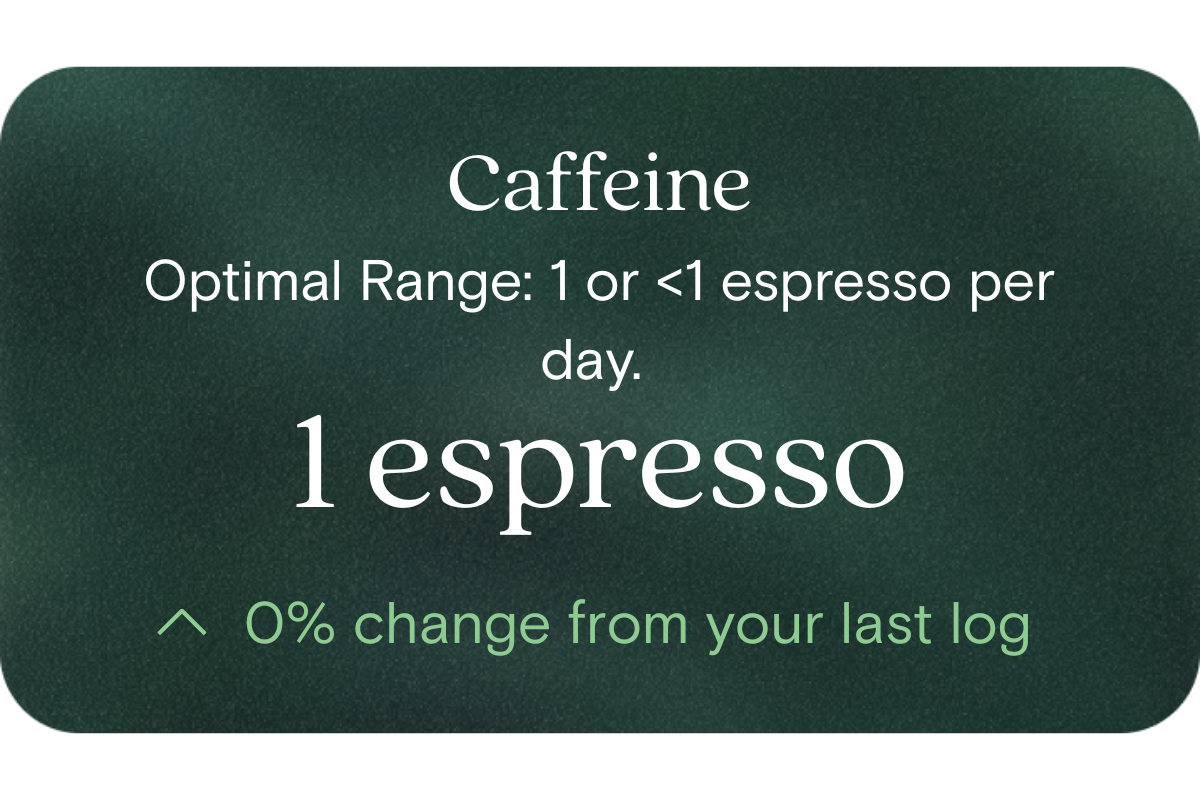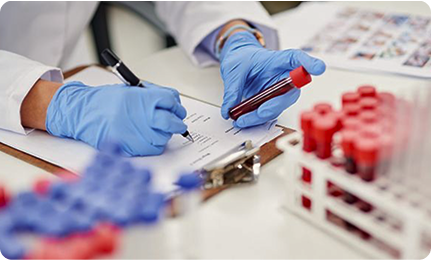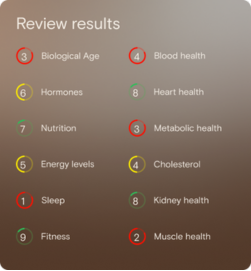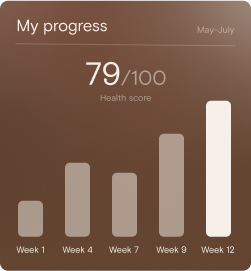What is caffeine?
Caffeine is a natural stimulant that temporarily increases alertness by blocking adenosine receptors in the brain. It’s commonly found in coffee, tea, chocolate, and energy drinks.
Why does it matter for long-term health and wellbeing?
Regular caffeine intake influences sleep, stress levels, and how your body manages energy. Tracking it helps you understand how much is supporting your focus and performance versus disrupting recovery and rest.
What’s an optimal level of caffeine?
The optimal intake is one or fewer espressos per day (around 220 mg or less).
Typical Australian ranges include:
- 20%: More than 5 espressos per day (high intake – pay attention)
- 40%: Between 4–5 espressos per day (sub-optimal)
- 60%: 3 espressos per day (sub-optimal)
- 80%: 2 espressos per day (balanced)
- 100%: 1 or fewer espressos per day (optimal)
What influences caffeine levels?
Factors include your metabolism, timing of consumption, beverage size, and caffeine sensitivity. Genetics and sleep quality can also affect how long caffeine stays active in your system.
What does it mean if caffeine intake is outside the optimal range?
Consuming above the optimal range may reduce sleep efficiency, increase restlessness, and affect recovery. It suggests an opportunity to rebalance your intake for steadier energy and better daily rhythm.
How can I support healthy caffeine levels?
Space out caffeine earlier in the day, stay hydrated, and replace excess coffee with herbal tea or water. Tracking through Vively helps identify personal thresholds where caffeine works best for you.
This information is provided for general health and wellness purposes only and does not replace medical advice.
References
- Food Standards Australia New Zealand. Caffeine — general information. (FSANZ)
- McLellan, T. M., Caldwell, J. A., & Lieberman, H. R. (2016). A review of caffeine’s effects on cognitive, physical and occupational performance. Neuroscience & Biobehavioral Reviews, 71, 294-312.
- Food Standards Australia New Zealand. Safety assessment of caffeine, P1056 supporting document.
- Australian Institute of Sport / AIS (via AusSport). Caffeine – references and context for Australian consumers.




















.png)


.svg)

